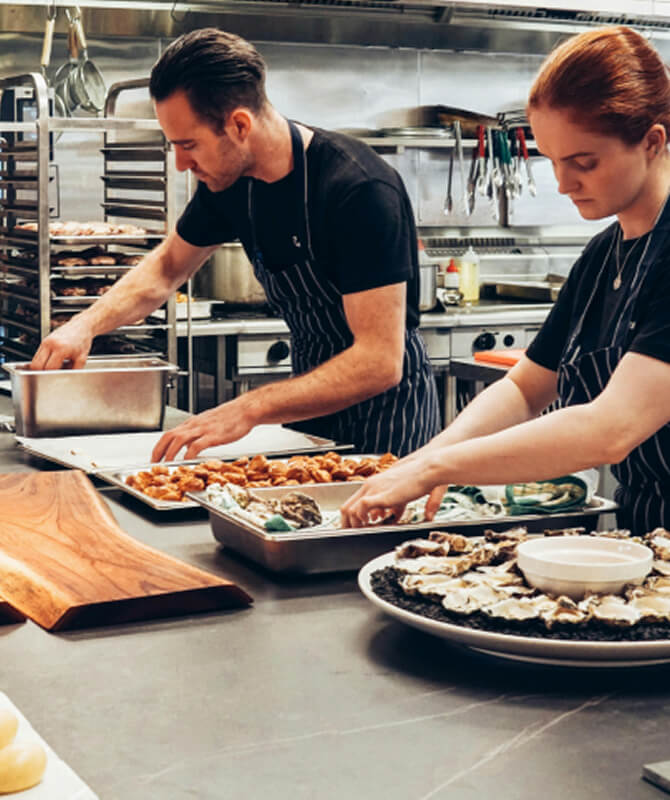The 7 best eCommerce marketing trends for 2025
By
Ben Kreynes
Date
April 08, 2025
Share

As ecommerce continues to evolve, brands must stay ahead of changing consumer behaviors and emerging technologies. In 2025, AI, omnichannel experiences, social commerce, and personalized shopping journeys will redefine how brands engage with their audiences. Let’s explore the key trends shaping ecommerce marketing in the coming years.
1. Digital Transformation: Embracing Technology for Seamless Experiences
Key Insights:
- 63% of hotel bookings are expected to be made through online channels by 2025.
- Mobile bookings continue to grow at a rate of 15% annually.
- 54% of travelers prefer brands that offer mobile check-ins, digital room keys, and virtual concierge services.
Impact on Hospitality:
The shift to digital platforms has changed the customer journey. The industry is moving toward frictionless experiences, where guests expect to engage with brands through digital touchpoints. The growing demand for mobile-first services—such as mobile check-ins and inroom smart technology—necessitates investments in digital infrastructure.
2. Social Media and User-Generated Content: The Power of Peer Influence
Key Insights:
- 81% of travelers use social media for researching travel destinations and accommodations.
- Platforms like Instagram, TikTok, and YouTube have become central to travelers’ decisionmaking processes.
Impact on Hospitality:
Social media serves as a powerful marketing tool in the hospitality sector. Hotels, restaurants, and resorts must leverage user-generated content (UGC) to enhance brand credibility and engage potential customers. Guest experiences shared on social platforms can build trust and influence purchasing decisions, making it critical for hospitality brands to maintain an active and engaging presence.
3. Personalization: Tailoring Experiences for the Modern Traveler
Key Insights:
- 70% of customers expect personalized experiences based on past behaviors and preferences.
- AI-driven personalization is a key factor in enhancing guest loyalty.
Impact on Hospitality:
Personalization is no longer optional for hospitality brands. Guests expect tailored services— from room preferences to personalized recommendations for dining and activities. Leveraging AI and data analytics allows businesses to offer highly targeted marketing campaigns, improving guest satisfaction and retention rates.
IV. The Wellness Revolution: Holistic Health in Dining and Travel
Social media is amplifying the wellness trend, with users sharing their journeys toward health-conscious dining and mental wellness. Restaurants offering wellness-focused menus, such as gluten-free, plant-based, or low-carb options, can leverage social media to showcase these offerings, connecting with an audience that values both physical and mental well-being.
4. Sustainability: Meeting the Demand for Eco-Conscious Choices
Key Insights:
- 68% of travelers prefer accommodations committed to sustainability.
- Sustainable practices are expected to influence 2025 bookings and brand selection.
Impact on Hospitality:
Sustainability is a growing priority for both travelers and brands. Eco-conscious consumers are more likely to choose accommodations and services that demonstrate a commitment to sustainability, such as energy-efficient operations, waste reduction, and sustainable sourcing. Hospitality brands must embrace green initiatives to meet customer expectations and differentiate themselves in the market.
5. The Rise of the Experience Economy: Creating Memorable Guest Experiences
Key Insights:
- 77% of travelers prioritize unique, experience-driven vacations over traditional trips.
Impact on Hospitality:
As travelers seek more immersive experiences, the demand for personalized, one-of-a-kind offerings is on the rise. Hospitality brands can differentiate themselves by offering curated experiences, from local cultural tours to wellness programs. These unique experiences not only enhance guest satisfaction but also generate additional revenue opportunities.
6. Voice and AI Integration: The Future of Customer Interaction
Key Insights:
- 45% of travelers use voice assistants for making travel-related decisions.
- AI-driven tools are becoming integral to enhancing guest interactions, including virtual concierge services and in-room voice assistants.
Impact on Hospitality:
Voice and AI technologies are reshaping customer interactions in hospitality. With the increasing use of voice assistants like Amazon Alexa and Google Assistant, hotels are integrating these technologies into rooms to provide guests with personalized and efficient services. AI-powered chatbots and virtual assistants also play a significant role in improving customer service and streamlining operations.
7. Financial Outlook: Navigating Rising Costs and Revenue Opportunities
Key Insights:
- Hotel insurance premiums have risen by 15.3% in 2024, with economy hotels seeing increases of 19.6%.
- Despite rising costs, luxury hotels are expected to experience a 2.9% growth in revenue per available room (RevPAR) in 2025.
Impact on Hospitality:
Rising operational costs present a significant challenge for the hospitality industry. However, luxury brands continue to see growth, driven by consistent demand and premium pricing strategies. Brands must find ways to manage costs effectively while maintaining high-quality guest experiences. Diversifying revenue streams, such as offering experiential packages and wellness services, will be essential in sustaining profitability.
Conclusion
The hospitality industry in 2025 is set to embrace digital innovation, prioritize personalization, and meet growing expectations for sustainability and unique experiences. With the rise of social media and the increasing influence of peer reviews, brands must leverage technology to engage with customers at every touchpoint. As consumer expectations continue to evolve, hospitality businesses must adapt quickly to remain competitive in this fast-changing market.
You might also like
- April 21,2025
- April 13,2025
- March 28,2025
- February 15,2025




